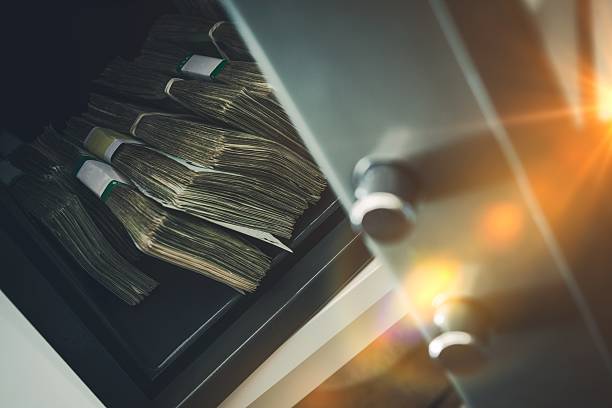There are different payments and fees that you may be aware of relating to apartment renting. These can include payments for utilities, rent, or even sometimes parking space.
With that said, there is one major expenditure that you might not be aware of, and that’s a security deposit.
How much is a security deposit, and what is it? What is the payment used for, and when are you required to pay it? Here, we’ll answer all of the questions you have relating to the security deposit.
What is a Security Deposit for an Apartment?
A security deposit involves money that a tenant pays a landlord before moving into a rental unit. It acts as a form of insurance for the owners or property managers to protect their apartments from damage by tenants.

Even though the security deposit amount varies per property or state, it’s equal to the monthly rent in most cases.
The property manager or landlord holds the security payments for the period of the lease. After the lease expires, the tenant returns the money in full after the apartment inspection meets the standards. This can only happen if you have paid your last month’s rent in full.
If some fees or damages need covering, that amount will be deducted from the security payment.
Let’s consider more information about the security deposit:
Where is the Security Deposit Paid?
You normally pay the security deposit to either the property manager or landlord before you’re allowed to move-in. In most cases, tenants must pay the security payment together with their first month’s rent, and any other move-in costs.
Depending on the regulations of the location, you can pay your payment by cash, money order, electronic (ACH) payment, or check.
How Much is a Security Deposit?
The security deposit is typically equal to one to two month’s worth of rent, depending on the state laws and the criteria of the community.
For instance, if your one month‘s rent is $500 and the landlord requires a one month‘s rent deposit, you should deposit a security payment of $500.
Your credit score can also determine the payment that you put down. A low credit score will usually require a higher security deposit amount, while a higher credit score might translate into a low-security deposit required.
Other factors determining the amount of the security deposit include state laws, local market rates, rental quality & type, and rental application (employment history, criminal records, landlord verification, etc.).
Why Landlords Collect Security Deposits
Even though not all property managers or landlords collect a security deposit, it’s standard practice.
Landlords collect deposits as financial security to protect their apartments from damage by tenants. Below are some things that security deposits would cover, if your property owner requires them:
Property Protection
Accidents normally occur during the course of the lease. For instance, you might bang up the drywall or scuff the floor. Since such things result from the tenant’s fault, the repairs are typically paid for from the security deposit.
Knowing that their deposits are at stake if they damage any part of the apartment or house should make the tenants more careful in avoiding these damages.
Financial Protection
The security deposit is also used to cover rent or fees that haven’t been paid after the lease elapses. For instance, if you haven’t paid your last month’s rent by the time your lease expires, the money will be subtracted from the security payment.
Pet Protection
If you own a pet in your apartment, the property owner may require that you make deposits for them. This payment will cover any itemized list of damages that the pet is at fault for, such as tearing of carpets or defecating in the unit. Some landlords even charge pet rent on top of the deposits.
What Does the Property Owner Do with the Security Deposit?
The property owner will do nothing with the payments unless something needs to be covered by it. The money is kept in a bank account separate from the landlord’s business bank account during the lease period.
Security deposits might, therefore, accumulate some interest at times. In some states, the property owner retains the interest, while in others the tenant is entitled to the earnings from the interest. This is something that you must confirm with your landlord before you sign the lease.
Under What Conditions can Landlords Deduct Money from the Security Deposit?
Since a deposit is a protective measure, there are certain situations under which your landlord may deduct money from it.
When Damages Happen Beyond Normal Wear and Tear
Wear and tear are considered normal things that the property owner should fix, free of charge, when they occur. However, there are abnormal damages that might become the tenant’s responsibility to fix. The cost of fixing such damages could come from your deposit.
In most states, provisions are in place to prevent the landlord from deducting unnecessary and unreasonable fees from the deposit. For instance, the landlord can’t withhold the deposit to pay for things that the renter didn’t wreck in the state of California.
You Owe Unpaid Fees or Rent
If you owe your landlord unpaid rent or late fees at the end of the lease, this money owed can be deducted from the deposit.
The property owner can also deduct money from the payment if you break your lease without giving adequate notice. You should, therefore, avoid breaking your lease unless it’s absolutely necessary.
You Leave the Apartment in Worst Condition than You Found It
The property owner is allowed to deduct money from your deposit if you leave your apartment unit a mess after vacating. This is because they might be required to hire a cleaning service to clean up the unit.
It’s, therefore, a wise idea to clean your unit before moving out. Ensure that the unit is as clean as you found it when you moved in.
How Long Does it Take to Get My Security Deposit Back?
The time it takes for you to get your deposit back varies from state to state. However, in most cases, you’ll get your deposit back between 30 to 60 days after the lease expires and you’ve moved out.
Since you’ll receive the deposit back in the form of a check by mail, you should notify the landlord of your new forwarding address to guarantee prompt delivery.
What if You Don’t Receive Your Security Deposit Back?
If you don’t receive your full payment back, it might be because your property manager had to make deductions. However, if you disagree with the deductions, there are actions that you need to take.
First, you can write a letter to your landlord explaining why you deserve the full payment. Ensure you keep a copy of the dispute letter.
If you fail to reach a satisfactory agreement with your landlord, file a lawsuit in a small claims court. You can also consider approaching a professional mediator.
Alternatives to Security Deposits
There are several efficient and cost-effective alternatives to the deposit:
Lease Insurance
Landlords and property managers are now exploring lease insurance options, such as LeaseLock, to do away with security deposits from apartment proceedings.
Here, the landlord or tenant pays a small fee of at least $19 each month for coverage against hundreds and thousands of dollars in property damage.
Pay-Per-Damage
Instead of charging tenants a large amount of money as a deposit, landlords opt for billing tenants for damages on a case-by-case basis.
Here, the landlord isn’t allowed to overcharge tenants, and they can only charge up to the maximum amount allowed for a traditional deposit.
Surety Bonds
Surety bonds will allow you to pay only a small percentage of the security bond to the property manager or landlord. They are facilitated through third-party bonding and management companies.
Since the bonding companies guarantee that tenants will abide by the bond terms, landlords can accept small deposits.
Do Security Deposit Laws Change by State?
Security deposits vary from one state to another. Some states don’t have statutory limits, meaning they don’t specify what a property manager can charge for a deposit.
With that said, other states have a cap limit to what a property manager or landlord can charge. There are also strict laws concerning when the deposits have to be returned to the tenants.
Final Verdict
The security deposit is the best way available to protect the interest and property of the landlord. If you abide by the lease terms and leave nothing damaged, you’ll get your payment back without question.
You can also opt for other options that offer similar benefits to a security deposit, at an affordable cost.
If your landlord or property manager refuses to return your security deposit, there are legal avenues that you can explore.
Always do your best to ensure that you get your security deposit back when you move out of an apartment.









